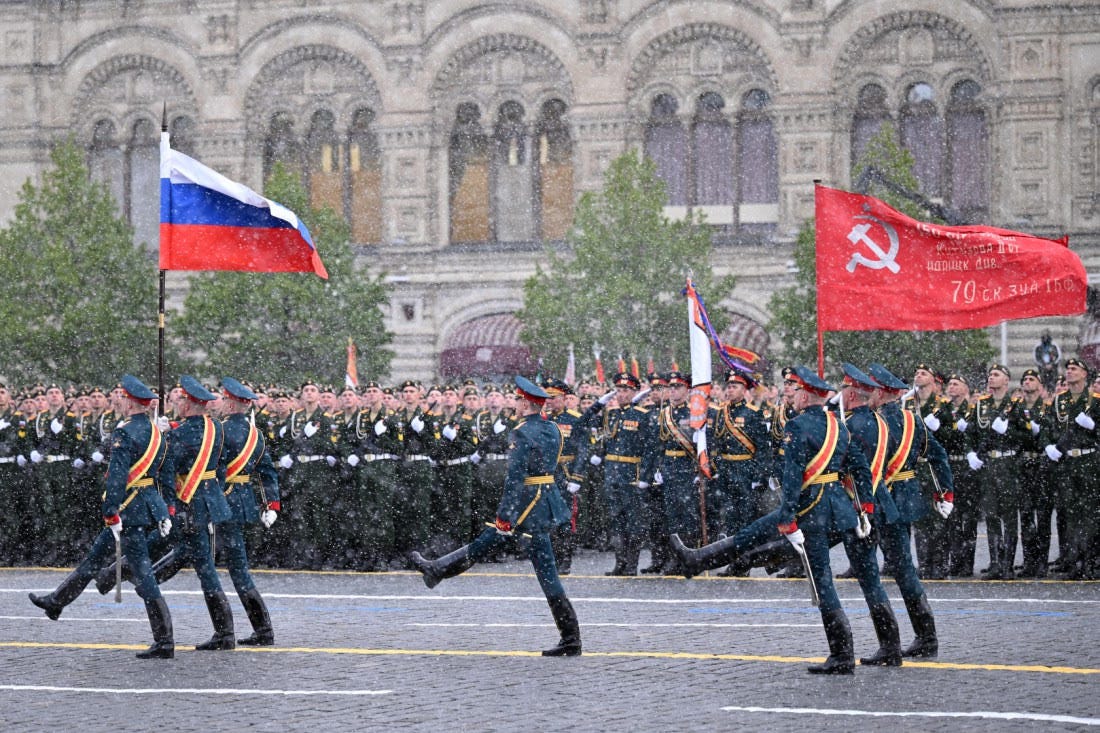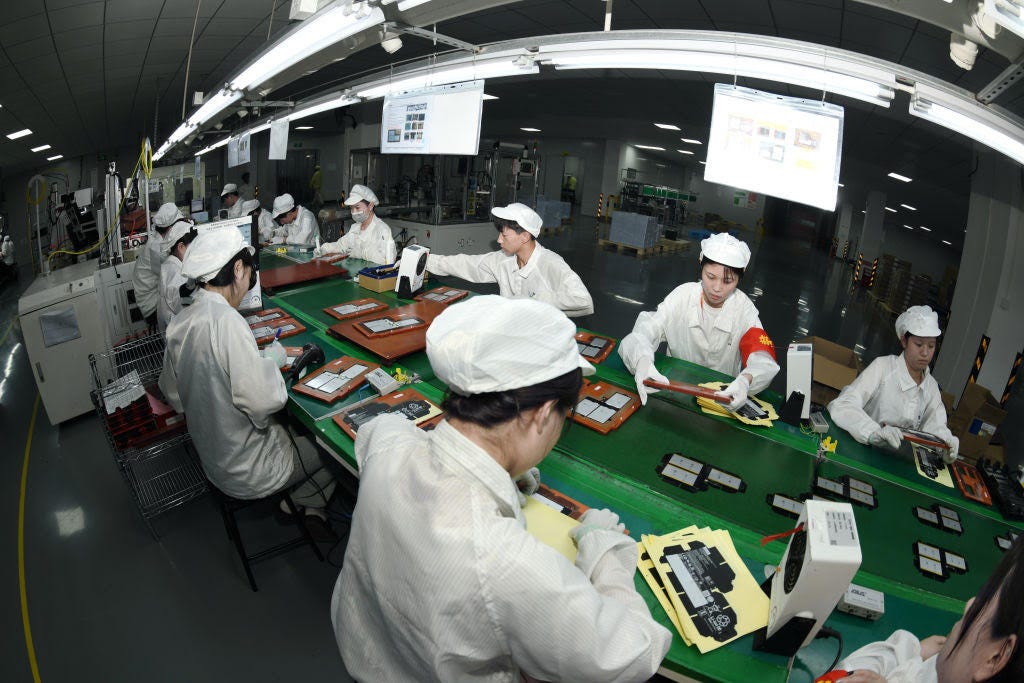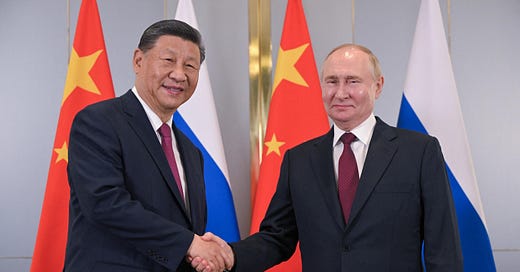Hello and welcome to Hostile World with Chris Hughes, a weekly newsletter about the world of defence and geopolitics. You can subscribe here and follow me on Twitter @defencechris. Thank you!
Western intelligence agencies have known for some time the tangible help Iran and North Korea are giving to Moscow’s war effort in Ukraine.
Weapons, artillery pieces and Shahed drones have all helped the Kremlin’s efforts to pile misery on Ukrainian civilians - and another cold winter is approaching.
The revelation this week that Tehran is supplying Russia with long-range ballistic missiles has jolted the West into massively bumping up support to Kyiv.
Tehran’s support in such a way was described in Kyiv this week by UK Foreign Secretary David Lammy as a “significant and dangerous escalation.”
Both the US and the UK have firmly pointed the finger at Tehran for its escalating support of Putin’s war on Ukraine.
The two countries have between them promised several hundred millions of pounds worth of military and civilian aid to back Ukraine’s military and rebuilding infrastructure.

In addition, major sanctions have been piled onto Iran as a result of its misguided aid to Russia - marking a major shift in Western support for Ukraine.
Behind the scenes, I believe Ukraine will be informed of the rules on not firing Western-supplied long-range weapons into Russia, as a result of Iran’s provocation.
As always, Beijing is in the background watching the battleground unfold, watching proceedings from a distance and plotting its next move.
But could Beijing really be quietly easing itself into pole position as one of Moscow’s key allies in the war? This is a question which is increasingly causing alarm in the West.
Europe and the US are becoming very frustrated over China’s enabling of Putin’s war on Kyiv for more than just its practical support.
The US has stated that Beijing is providing the Kremlin’s war-planners with satellite imagery on troop movements in order to help Moscow’s effort in the conflict.
So far, I am not sure we have seen evidence that this has been of much use to Moscow - but it is also believed Beijing is helping Moscow improve its space-based surveillance capability.
According to US sources, it is also “highly likely” China is providing Russia with nitrocellulose, which is a substance used to make propellants for weapons - in particular deadly missiles.
These are exactly the kinds of components that Russia needs to bypass sanctions, due to having previously bought this substance from Western companies.
Some time ago, I revealed how the accuracy of Russian tank fire had been reduced from seven miles to about three miles due to shortages of optical technology.
Sanctions are incredibly complex tools that have to be dished out carefully, since they can - if ill-timed and poorly distributed - help a non-target country that does not have the West’s best interests in mind.
Interestingly, it is possible that Western sanctions against Russia have actually massively empowered China by making Moscow so dependent on it.
Russia is now so dependent on the only major economy still taking the risk to support its regime that China could now wield a great deal of power over Moscow.
What that means, according to some observers, is that Beijing could become key to any peace negotiations due to possibly being the only ally able to force Moscow to comply.
Shortly after war broke out in 2022, in an attempt to pile pressure on European countries supporting Ukraine, Russia decided to cut almost all of its exports of gas to the West.
Before the war, Russia had provided just under half of Europe’s gas.
This has produced the energy crisis and a massive hike in bills throughout Europe - even if this effect has been vastly lessened recently as countries have found replacements for Russian-supplied gas.
Electricity prices in Europe are now roughly the same as they were before the war, and gas prices are high but are still dropping.
But now Russia faces a massive problem of its own: to whom can it sell its gas?
As Western countries have banned Russian oil, the country is forced to sell it for much less to the likes of China and India.

China can buy gas from anywhere, but Russia can only sell it to China - and Moscow desperately needs currency with which to finance its war.
Just as crucially, despite huge efforts to bypass Western sanction on dual-use goods needed for weaponry, Russia has again turned to China.
It appears now that China is responsible for around 90% of Russia’s import of “high priority” dual-use goods – electronic components, radars, sensors – without which it could not build advanced military hardware.
China has moved into a powerful position to leverage the West in any negotiations with Russia.
The difference between its relationship with the West and the one it has with Russia is that the Chinese economy is dependent on the vast Western markets to sell goods.
Anyone who tried to source a non-Chinese origin electrical piece of equipment such as a shaver or toothbrush during the Covid crisis will know that the task was and is near-impossible.
In many ways Russia is now dangerously reliant on China, which is dangerous for Vladimir Putin at least.
This is because the West will be cosying up to Beijing behind the scenes, while being conscious of the amount of huge leverage it has over Russia.
And as Ukraine is increasingly attacking inside Russia, there will eventually be increasingly urgent calls for a ceasefire deal.
That, I believe, will be the time when we see China play its hand.
As one intelligence analyst told me this week: “It is good that at least one country has such leverage over Moscow, but it might be very tough to take advantage of it.
“The question is what price will a ceasefire deal come at, particularly at a time when Beijing is staring at the leash to claim Taiwan and expand elsewhere.
“Thus far, China is playing a brilliant geopolitical game of chess.
“It is true that its economy is incredibly vulnerable to and reliant upon Western markets.
“But the power it exerts over Russia is likely to give it a great advantage in the coming years and could play a key role in the future of Ukraine and Russia.
“Putin has had no choice but to allow this to happen because he is desperate for support. But that will one day come at a price.
“Whether that will cost Ukraine, the West or Russia - or perhaps all three - remains to be seen.
“China using all of this leverage for a chance to have a crack at Taiwan cannot be discounted.
“All of this leverage is being totted up gradually - and Russia’s costly war in Ukraine is strengthening China’s position.”
Thank you
I hope you’ve enjoyed my latest newsletter. If you have been forwarded this email and would like to sign up, you can do that right here.
Let me know your thoughts in the comments and see you next week,
Chris








